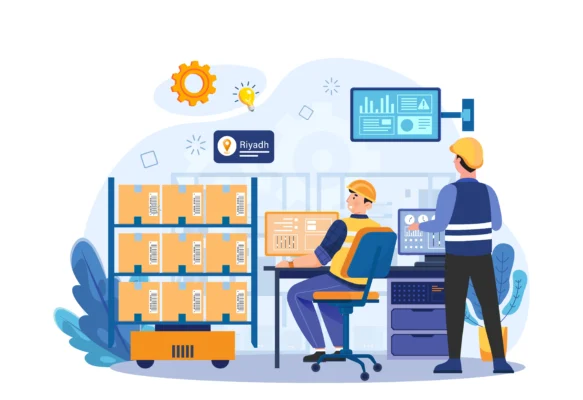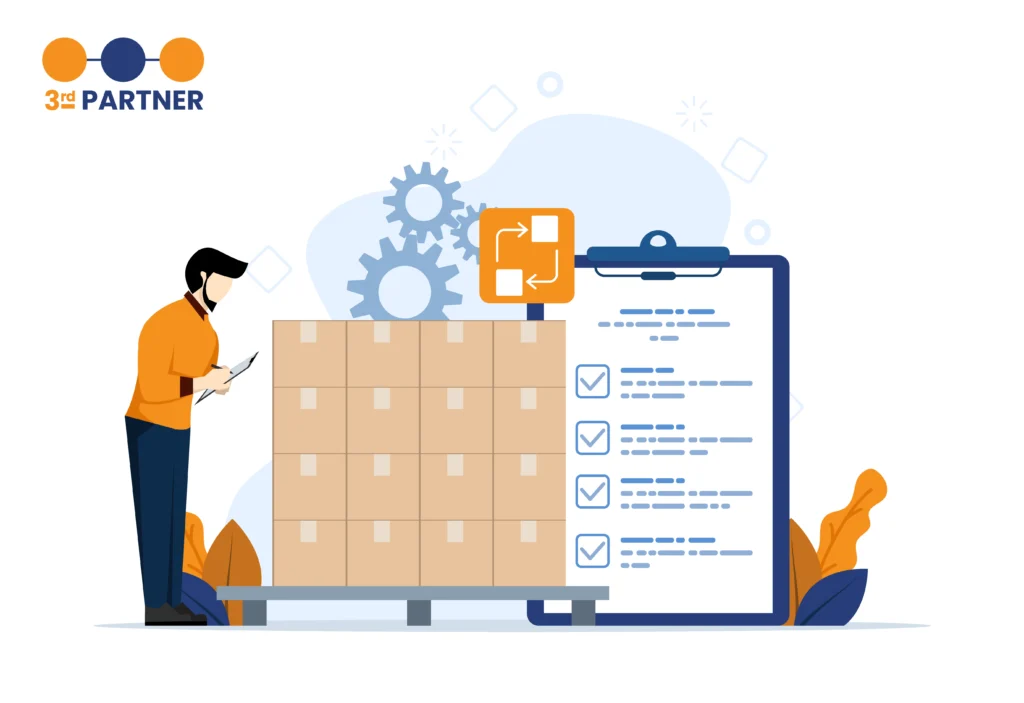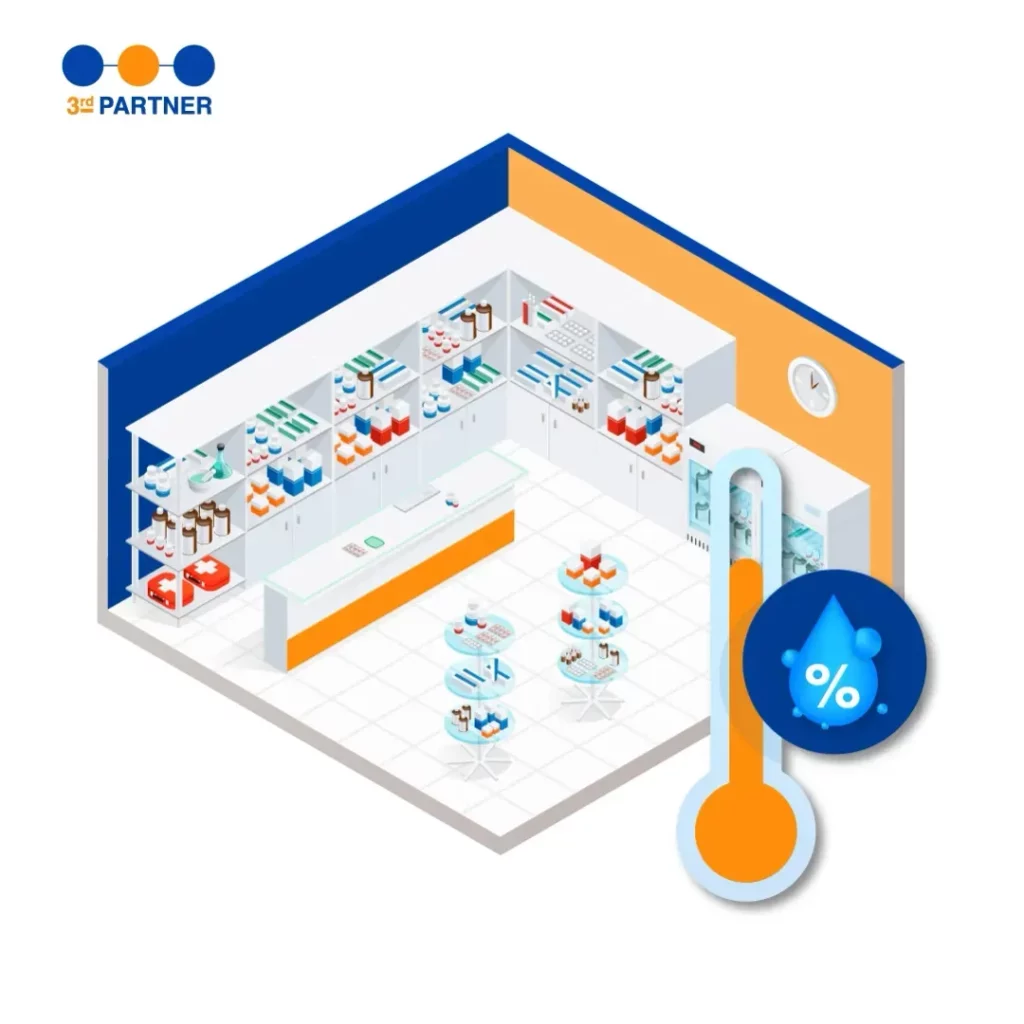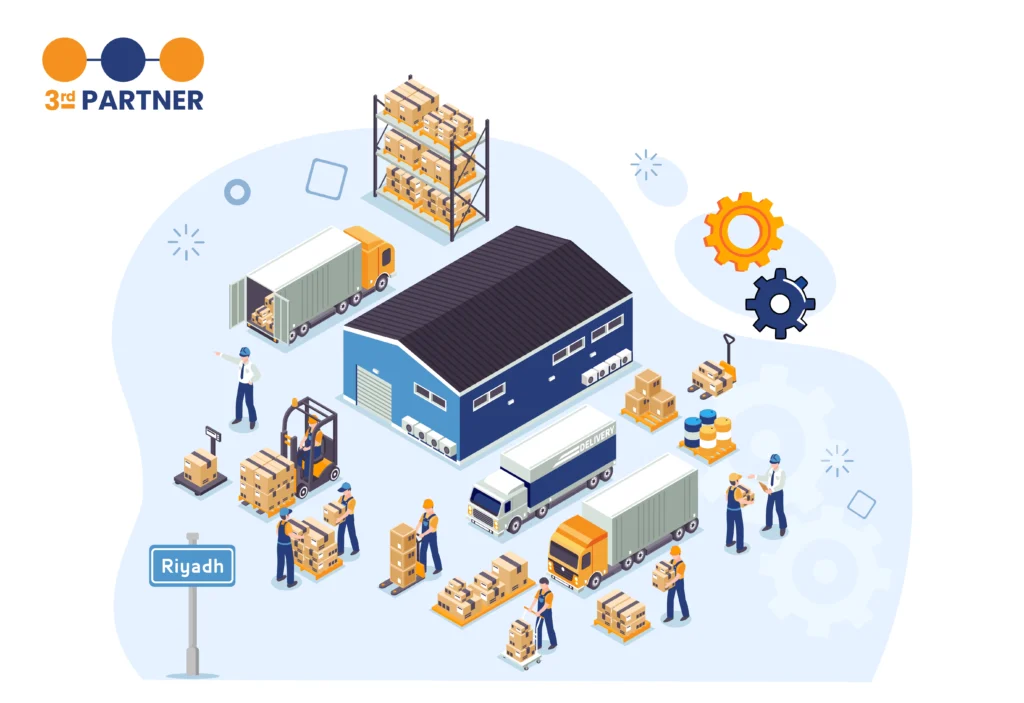The technological revolution in Riyadh is reshaping the world of warehousing and logistics. As businesses increasingly pivot towards e-commerce and 24/7 operations, the demand for advanced, efficient, and sustainable warehousing solutions has never been greater. From automated guided vehicles to AI-driven inventory management, these innovations are not just modernizing storage facilities but are setting new benchmarks for operational excellence. Join us as we explore how the cutting-edge warehousing technology Riyadh can transform high-tech hubs of activity, driving unprecedented levels of efficiency, accuracy, and sustainability.
The Evolution of Warehousing Technology Riyadh
Warehousing has evolved from traditional storage spaces into high-tech hubs of activity. This evolution is driven by the need for faster, more efficient operations and the ability to manage larger inventories with precision. The transition from relying heavily on costly human labor to a more automated and technology-focused operation is known as “Warehouse Digitalization.”
7 Key Technologies Transforming Warehousing
To help you prepare for Warehouse Digitalization, here are seven important warehouse technologies you should know about by 2024:
1. Internet of Things (IoT)
The Internet of Things (IoT) is a network of connected physical objects, ranging from computers to everyday items with sensors. These smart devices form an ecosystem that captures and exchanges data in real-time. This technology gives organizations greater visibility into all aspects of their warehouse operations, from receiving goods to shipping them out. Additionally, IoT devices monitor the health of machinery and track the movement and usage of assets throughout the facility.
2. Business Intelligence and Predictive Analytics
Business Intelligence (BI) and Predictive Analytics are some of the best warehousing technology Riyadh that collect, analyze, and present data in a compact and easy-to-read format. BI produces consolidated reports and real-time dashboards based on data from warehouse operations, making it simple for decision-makers to understand business data and make informed decisions. Predictive Analytics uses statistics, data mining, and machine learning to determine patterns within current data and predict possible outcomes. These technologies help warehouses analyze large amounts of data and convert them into actionable insights, optimizing inventory levels and forecasting demand.
3. Robotics and Automation
Robotics and automation are crucial in simplifying warehouse operations. Robotics involves designing, constructing, operating, and using robots to perform manual processes, while automation encompasses operations that can be performed autonomously with minimal or no human assistance. These technologies take over repetitive tasks from humans, achieving more consistent, efficient, and accurate warehouse operations. This not only improves productivity but also enhances employee engagement by allowing personnel to tackle different operational roles. That`s why most professional logistic firms care to insert the best warehousing technology Riyadh in their strategy.
4. Automated Guided Vehicles (AGVs)
Automated Guided Vehicles (AGVs) are portable machines that navigate through floor stickers, radio waves, vision cameras, wires, magnets, or lasers. AGVs transport raw materials, work-in-progress, and finished goods around the warehouse with high precision. Warehouses equipped with Automated Guided Vehicles (AGVs) are more efficient because these vehicles can partially automate repetitive and time-consuming tasks and processes. AGVs work 24/7, maintaining consistent speed and precision since they don’t rely entirely on human operation.
5. Mobile and Wearable Technologies
Mobile and Wearable Technologies refer to small computing devices worn or carried by users to conveniently send and receive information anywhere in the warehouse. These technologies benefit processes such as picking, packing, and loading, increasing operational efficiency by eliminating the need to walk to a workstation. Accessing real-time data from any location enables warehouse staff to be more agile and quicker in making informed business decisions.
6. Blockchain
Blockchain is a digital system that securely records and links transaction data in a permanent way that can be verified. This technology allows different parties to share a single database of transactions, instead of relying on a central authority. By bringing together various entities on one platform, blockchain improves transparency, security, and accountability in the supply chain, making communication easier and preventing data tampering.
7. Artificial Intelligence (AI)
Artificial Intelligence (AI) enables machines to perform human-like tasks such as decision-making, speech recognition, spatial awareness, and visual perception. Artificial Intelligence (AI) analyzes vast amounts of data using machine learning algorithms and statistical models. In warehousing, AI is used in practices like AI chatbots for handling customer queries and semi-automating warehouse processes, such as streamlining the replenishment process by assigning tasks based on inventory levels and predicted demand.
Enhancing Efficiency with Warehouse Management Systems (WMS)
Warehouse Management Systems (WMS) are software tools designed to enhance and streamline the efficiency of warehouse operations. They manage inventory, track shipments, and streamline processes such as picking and packing. In Riyadh, the implementation of WMS has significantly improved warehouse efficiency by offering real-time visibility into inventory levels and automating various tasks, thereby reducing errors and enhancing productivity.
Sustainable Warehousing Practices
Sustainability is a key focus in warehousing technology Riyadh where there is a growing emphasis on adopting eco-friendly practices to reduce the environmental impact of warehousing operations. This includes using energy-efficient lighting, renewable energy sources, and sustainable construction materials. Implementing green initiatives helps reduce carbon footprints and enhances the reputation of warehouses as socially responsible entities.
Collaborative Robots (Cobots)
Collaborative robots, or cobots, are designed to work alongside human workers, boosting both productivity and safety. In Riyadh, cobots perform repetitive and physically demanding tasks, reducing the risk of injuries and allowing human workers to focus on more complex activities. Cobots exemplify a collaborative approach toward achieving efficiency in warehousing operations.
Real-time Tracking and Monitoring
Real-time tracking and monitoring are essential for maintaining transparency and accountability in warehousing operations. Advanced tracking systems in Riyadh provide real-time updates on the status of shipments, allowing warehouse managers to identify and address issues promptly. Real-time tracking enhances customer satisfaction by providing accurate delivery information, which is crucial in today’s fast-paced logistics environment.
The Future of Warehousing Technology Riyadh
The future of warehousing in Riyadh is promising, driven by continuous technological advancements that enhance efficiency and innovation. As warehouses increasingly adopt automation, the Internet of Things (IoT), artificial intelligence (AI), and other cutting-edge technologies, they will be better positioned to meet the demands of the modern market.
The integration of these technologies will not only boost operational efficiency but also significantly improve the overall customer experience. This technological evolution will enable warehouses to streamline processes, reduce errors, and provide faster, more reliable service, ultimately setting new standards in the industry.
Step-by-Step Guide to Implementing Technology in Warehousing
Adopting warehousing technology Riyadh involves a detailed analysis of your business processes and objectives. The right solution should enhance efficiency and streamline operations. Here’s a structured approach to help you incorporate technology into your warehousing before implementation:
1. Define Business and Technical Requirements
Start by outlining your specific business needs and goals. A comprehensive analysis of your current operations will help identify areas where technology can enhance efficiency. This can be done in-house or by hiring professional business analysis services.
The analysis will highlight your operational challenges, pinpoint processes ripe for automation, and suggest improvements. Once you have this insight, you can develop technical requirements tailored to your needs. For instance, if boosting picking productivity is your goal, consider robotic solutions. For better inventory management, AI-powered systems might be the answer.
Ultimately, your list of requirements will be shaped by what you aim to achieve through technology implementation.
2. Select a Suitable IT Vendor
With a clear understanding of your needs, the next step is choosing a software development partner to build your solution. Many companies offer software development, IT staff augmentation, and dedicated development teams. Here are some factors to assist you in selecting the right vendor:
– Portfolio of Successful Projects: Look for vendors with a proven track record in similar projects.
– Technologies Used: Ensure the vendor employs the latest and most relevant technologies.
– Client Feedback: Positive trusted reviews from previous clients can indicate credibility.
– Location and Time Difference: Consider geographical location and time zone differences for smooth collaboration.
You can begin your search on platforms like Clutch, ITFirms, and Software World, which offer detailed vendor profiles, portfolios, and customer reviews.
3. Set Your Budget and Create Version 1.0
Once you’ve chosen a vendor and defined the project scope, it’s time to plan your budget. A clear budget helps keep the project on track and manage all associated expenses. Typically, your vendor will provide a project estimate, giving you a clear idea of the costs involved before you commit.
The best vendors can provide project estimates that closely align with actual costs, with any deviations usually within a twenty percent range. Accurate budgeting and a clear understanding of costs will help ensure a smooth development process and successful implementation of warehousing technology Riyadh.
Conclusion
The advancements in warehousing technology Riyadh are revolutionizing the logistics and supply chain industry. From automation and robotics to IoT and AI, these technologies are enhancing efficiency, accuracy, and sustainability. By embracing these innovations, warehouses in Riyadh are well-equipped to meet the growing demands of the modern market.
Are you ready to elevate your warehousing operations to the next level? Partner with “3rd Partner” Co. and experience the benefits of cutting-edge technology. Contact us today to learn how we can help you optimize your warehouse and improve your supply chain efficiency.










